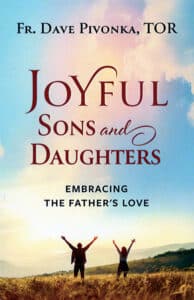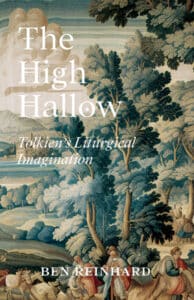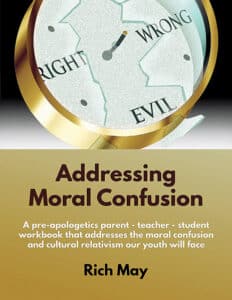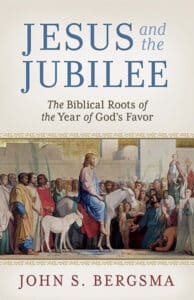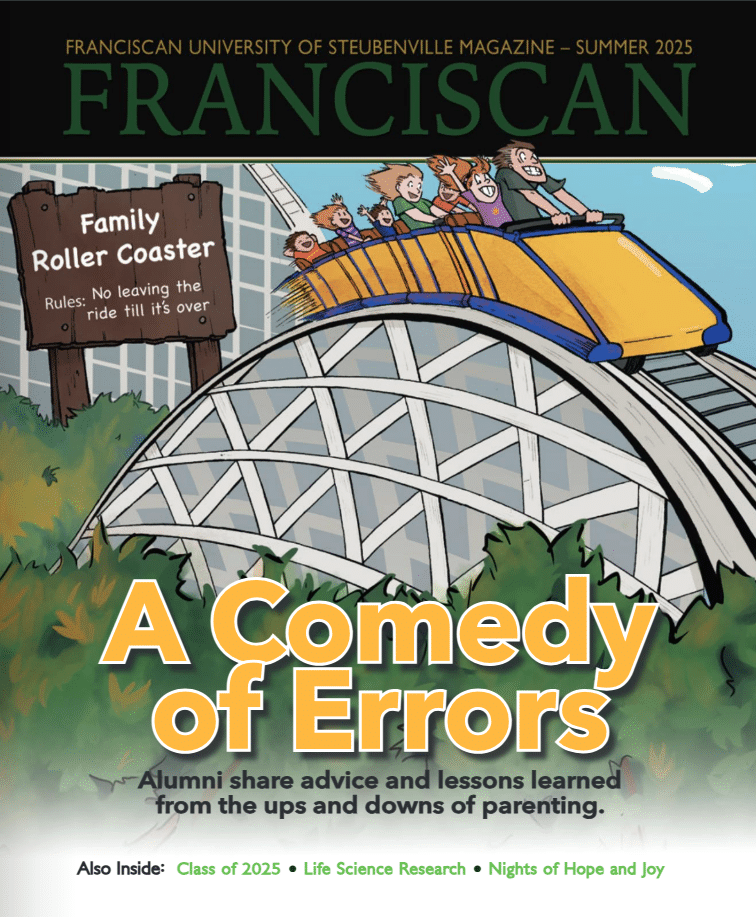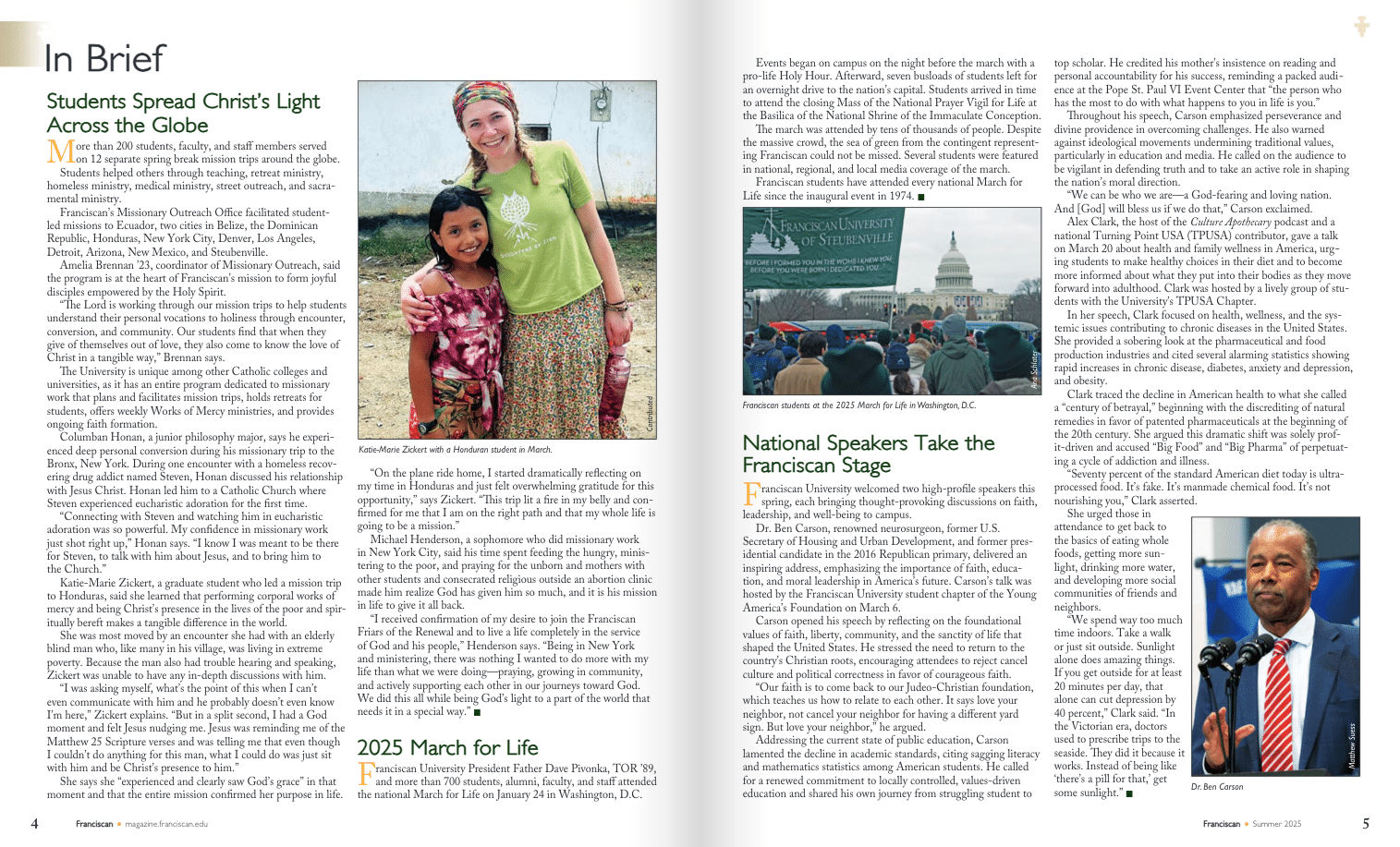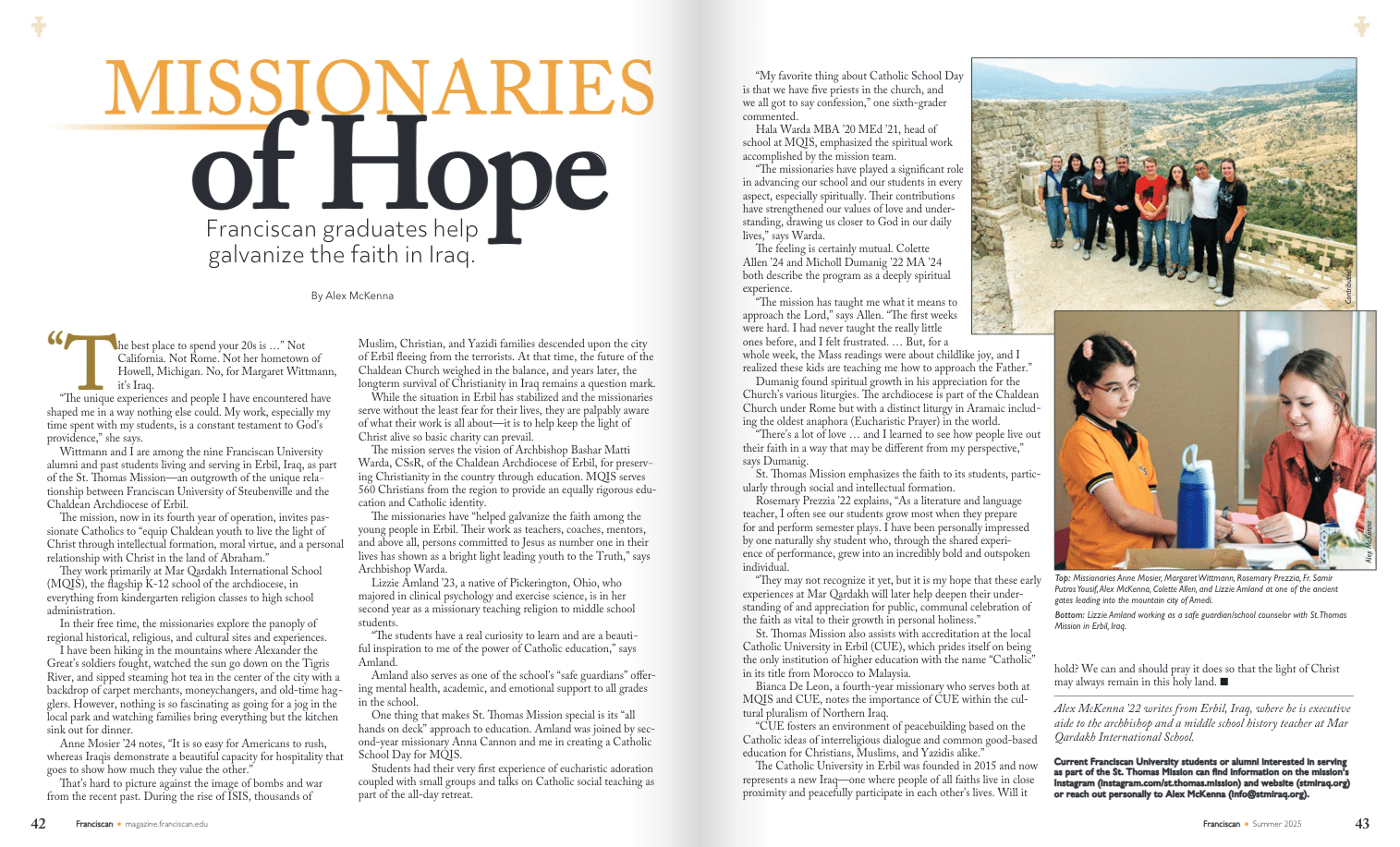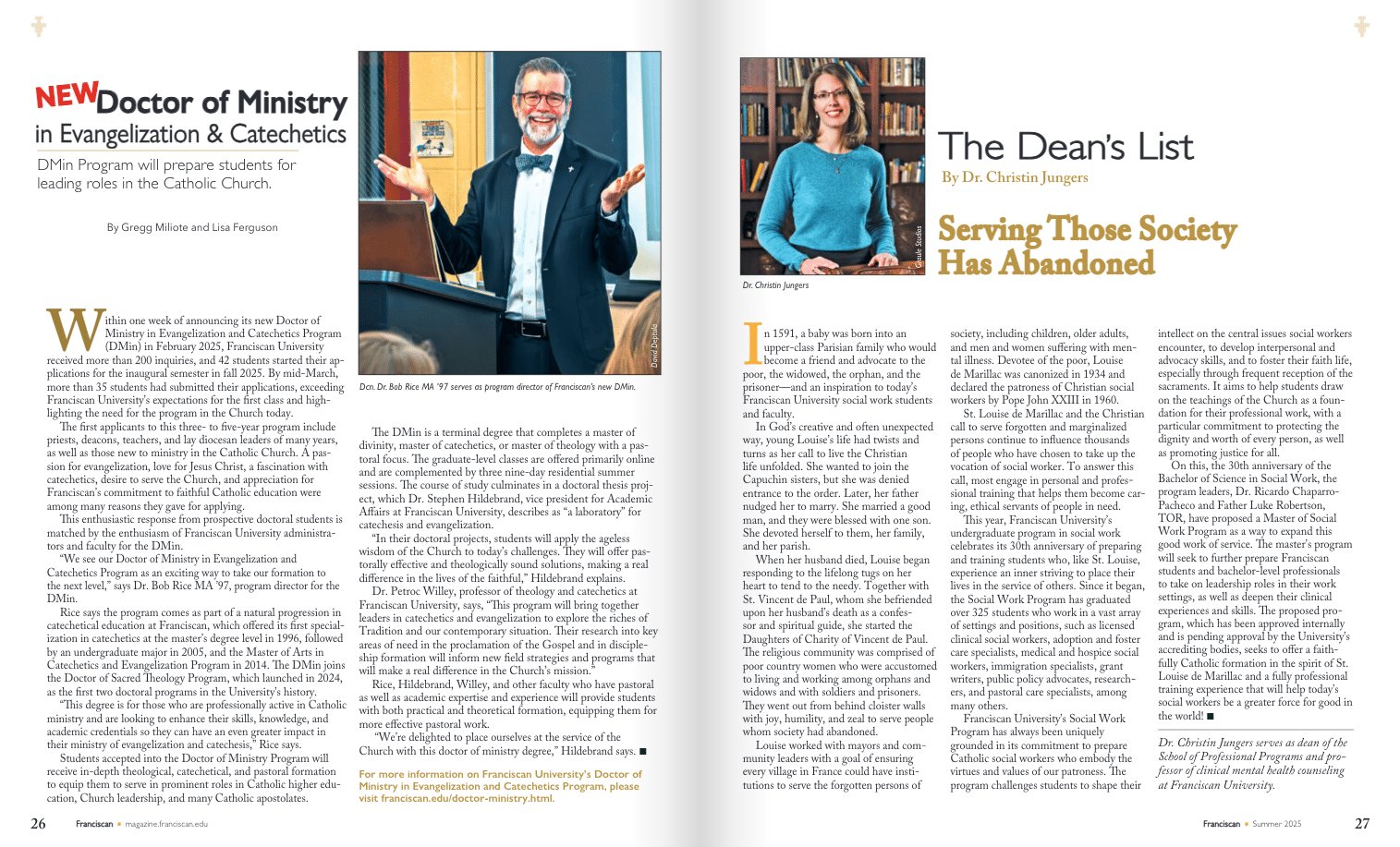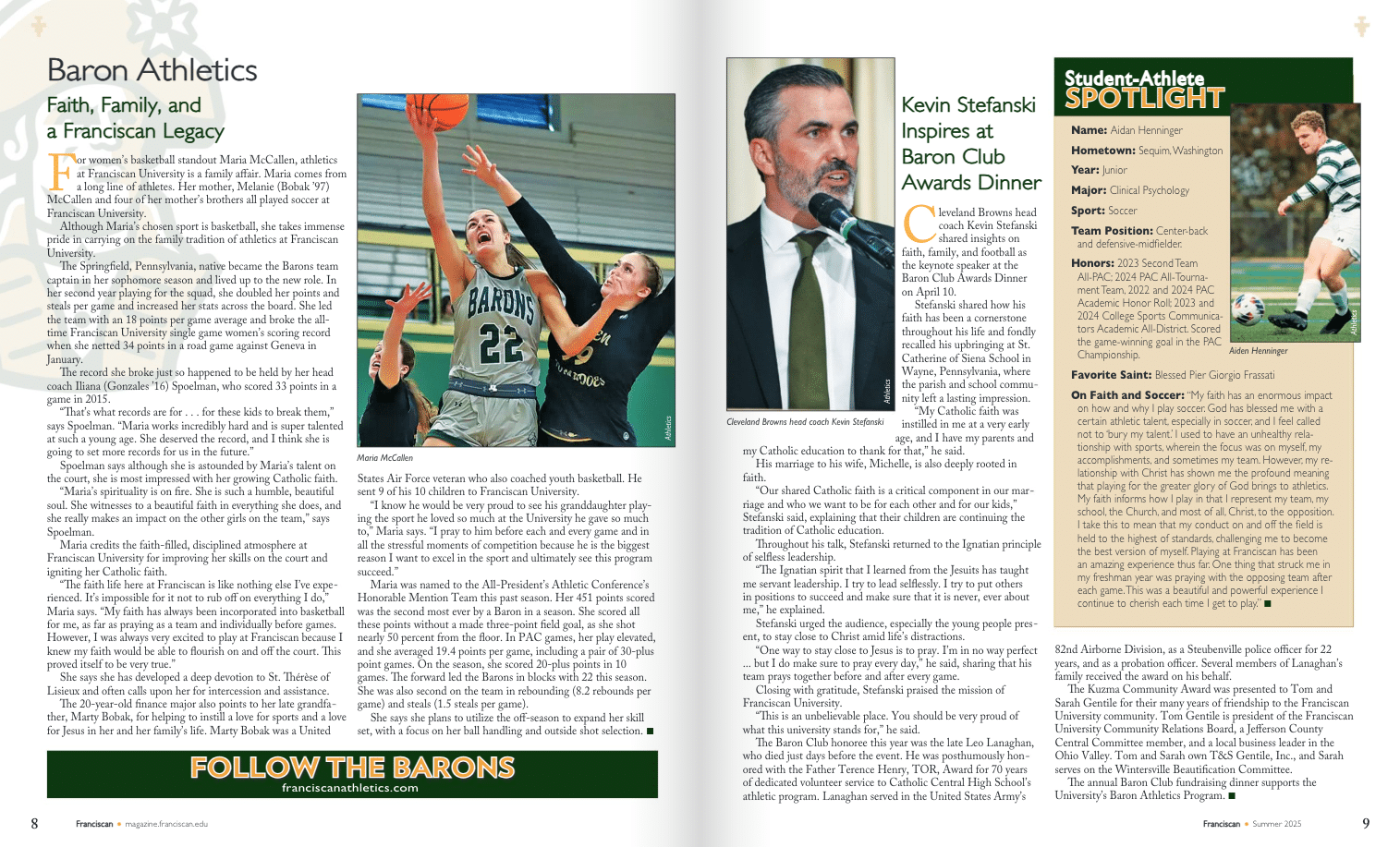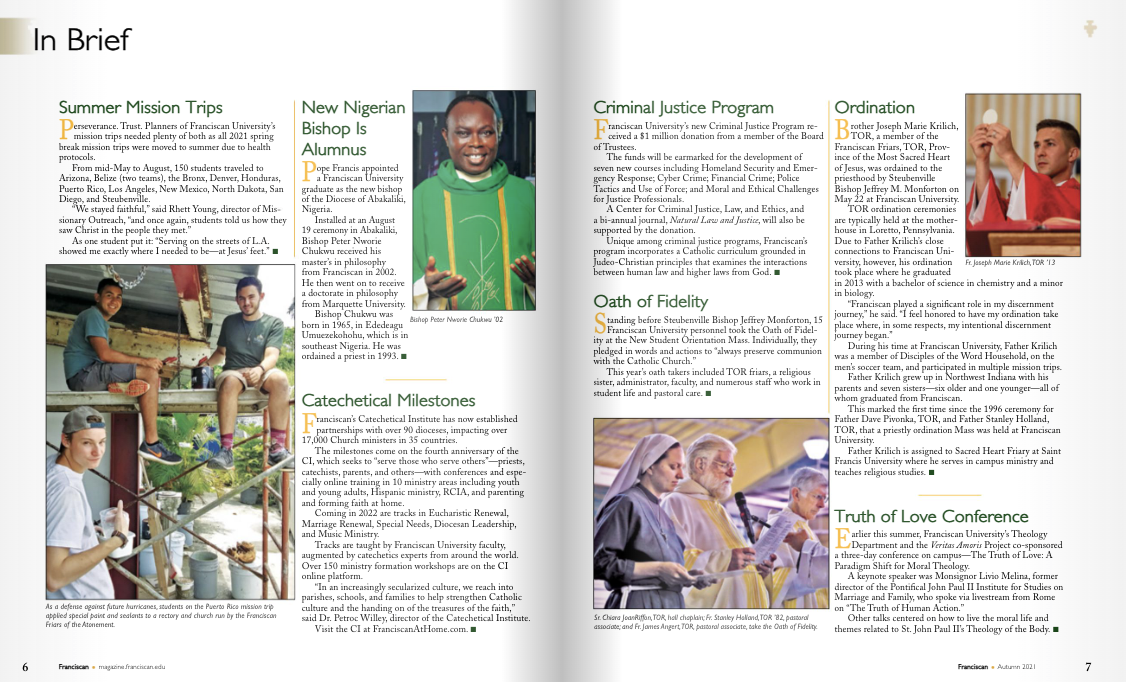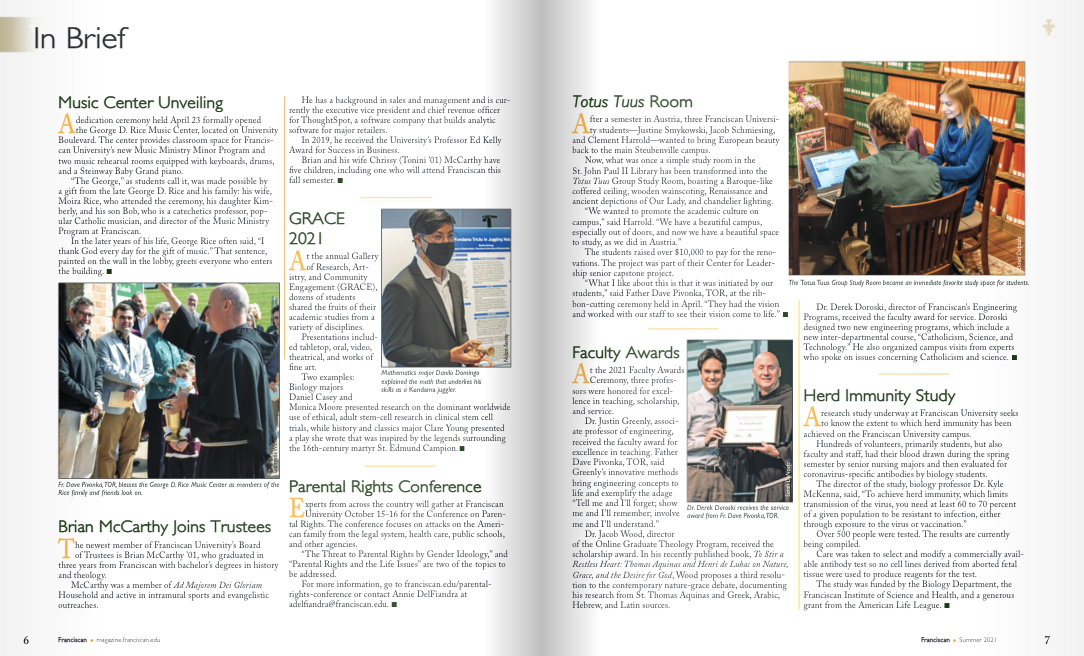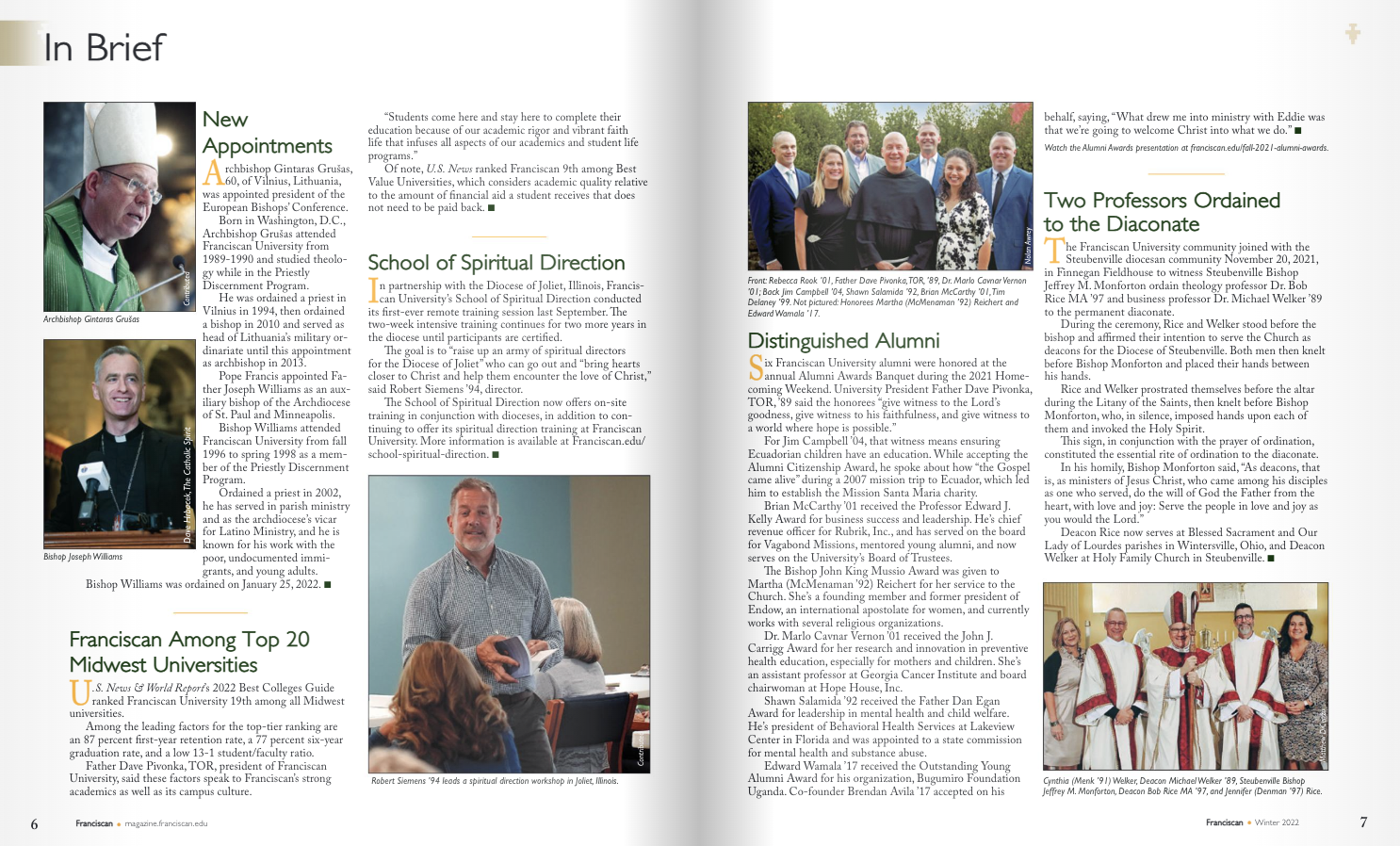Students Spread Christ’s Light Across the Globe
More than 200 students, faculty, and staff members served on 12 separate spring break mission trips around the globe. Students helped others through teaching, retreat ministry, homeless ministry, medical ministry, street outreach, and sacramental ministry.
Franciscan’s Missionary Outreach Office facilitated student led missions to Ecuador, two cities in Belize, the Dominican Republic, Honduras, New York City, Denver, Los Angeles, Detroit, Arizona, New Mexico, and Steubenville.
Amelia Brennan ’23, coordinator of Missionary Outreach, said the program is at the heart of Franciscan’s mission to form joyful disciples empowered by the Holy Spirit.
“The Lord is working through our mission trips to help students understand their personal vocations to holiness through encounter, conversion, and community. Our students find that when they give of themselves out of love, they also come to know the love of Christ in a tangible way,” Brennan says.
The University is unique among other Catholic colleges and universities, as it has an entire program dedicated to missionary work that plans and facilitates mission trips, holds retreats for students, offers weekly Works of Mercy ministries, and provides ongoing faith formation.
Columban Honan, a junior philosophy major, says he experienced deep personal conversion during his missionary trip to the Bronx, New York. During one encounter with a homeless recovering drug addict named Steven, Honan discussed his relationship with Jesus Christ. Honan led him to a Catholic Church where Steven experienced eucharistic adoration for the first time.
“Connecting with Steven and watching him in eucharistic adoration was so powerful. My confidence in missionary work just shot right up,” Honan says. “I know I was meant to be there for Steven, to talk with him about Jesus, and to bring him to the Church.”
Katie-Marie Zickert, a graduate student who led a mission trip to Honduras, said she learned that performing corporal works of mercy and being Christ’s presence in the lives of the poor and spiritually bereft makes a tangible difference in the world.
She was most moved by an encounter she had with an elderly blind man who, like many in his village, was living in extreme poverty. Because the man also had trouble hearing and speaking, Zickert was unable to have any in-depth discussions with him.
“I was asking myself, what’s the point of this when I can’t even communicate with him and he probably doesn’t even know I’m here,” Zickert explains. “But in a split second, I had a God moment and felt Jesus nudging me. Jesus was reminding me of the Matthew 25 Scripture verses and was telling me that even though I couldn’t do anything for this man, what I could do was just sit with him and be Christ’s presence to him.”
She says she “experienced and clearly saw God’s grace” in that moment and that the entire mission confirmed her purpose in life.
“On the plane ride home, I started dramatically reflecting on my time in Honduras and just felt overwhelming gratitude for this opportunity,” says Zickert. “This trip lit a fire in my belly and confirmed for me that I am on the right path and that my whole life is going to be a mission.”
Michael Henderson, a sophomore who did missionary work in New York City, said his time spent feeding the hungry, ministering to the poor, and praying for the unborn and mothers with other students and consecrated religious outside an abortion clinic made him realize God has given him so much, and it is his mission in life to give it all back.
“I received confirmation of my desire to join the Franciscan Friars of the Renewal and to live a life completely in the service of God and his people,” Henderson says. “Being in New York and ministering, there was nothing I wanted to do more with my life than what we were doing—praying, growing in community, and actively supporting each other in our journeys toward God. We did this all while being God’s light to a part of the world that needs it in a special way.”
National Speakers Take the Franciscan Stage
Franciscan University welcomed two high-profile speakers this spring, each bringing thought-provoking discussions on faith, leadership, and well-being to campus.
Dr. Ben Carson, renowned neurosurgeon, former U.S. Secretary of Housing and Urban Development, and former presidential candidate in the 2016 Republican primary, delivered an inspiring address, emphasizing the importance of faith, education, and moral leadership in America’s future. Carson’s talk was hosted by the Franciscan University student chapter of the Young America’s Foundation on March 6.
Carson opened his speech by reflecting on the foundational values of faith, liberty, community, and the sanctity of life that shaped the United States. He stressed the need to return to the country’s Christian roots, encouraging attendees to reject cancel culture and political correctness in favor of courageous faith.
“Our faith is to come back to our Judeo-Christian foundation, which teaches us how to relate to each other. It says love your neighbor, not cancel your neighbor for having a different yard sign. But love your neighbor,” he argued.
Addressing the current state of public education, Carson lamented the decline in academic standards, citing sagging literacy and mathematics statistics among American students. He called for a renewed commitment to locally controlled, values-driven education and shared his own journey from struggling student to top scholar. He credited his mother’s insistence on reading and personal accountability for his success, reminding a packed audience at the Pope St. Paul VI Event Center that “the person who has the most to do with what happens to you in life is you.”
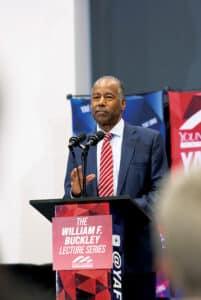 Throughout his speech, Carson emphasized perseverance and divine providence in overcoming challenges. He also warned against ideological movements undermining traditional values, particularly in education and media. He called on the audience to be vigilant in defending truth and to take an active role in shaping the nation’s moral direction.
Throughout his speech, Carson emphasized perseverance and divine providence in overcoming challenges. He also warned against ideological movements undermining traditional values, particularly in education and media. He called on the audience to be vigilant in defending truth and to take an active role in shaping the nation’s moral direction.
“We can be who we are—a God-fearing and loving nation. And [God] will bless us if we do that,” Carson exclaimed.
Alex Clark, the host of the Culture Apothecary podcast and a national Turning Point USA (TPUSA) contributor, gave a talk on March 20 about health and family wellness in America, urging students to make healthy choices in their diet and to become more informed about what they put into their bodies as they move forward into adulthood. Clark was hosted by a lively group of students with the University’s TPUSA Chapter.
In her speech, Clark focused on health, wellness, and the systemic issues contributing to chronic diseases in the United States. She provided a sobering look at the pharmaceutical and food production industries and cited several alarming statistics showing rapid increases in chronic disease, diabetes, anxiety and depression, and obesity.
Clark traced the decline in American health to what she called a “century of betrayal,” beginning with the discrediting of natural remedies in favor of patented pharmaceuticals at the beginning of the 20th century. She argued this dramatic shift was solely profit-driven and accused “Big Food” and “Big Pharma” of perpetuating a cycle of addiction and illness.
“Seventy percent of the standard American diet today is ultra-processed food. It’s fake. It’s manmade chemical food. It’s not nourishing you,” Clark asserted.
She urged those in attendance to get back to the basics of eating whole foods, getting more sunlight, drinking more water, and developing more social communities of friends and neighbors.
“We spend way too much time indoors. Take a walk or just sit outside. Sunlight alone does amazing things. If you get outside for at least 20 minutes per day, that alone can cut depression by 40 percent,” Clark said. “In the Victorian era, doctors used to prescribe trips to the seaside. They did it because it works. Instead of being like ‘there’s a pill for that,’ get some sunlight.”



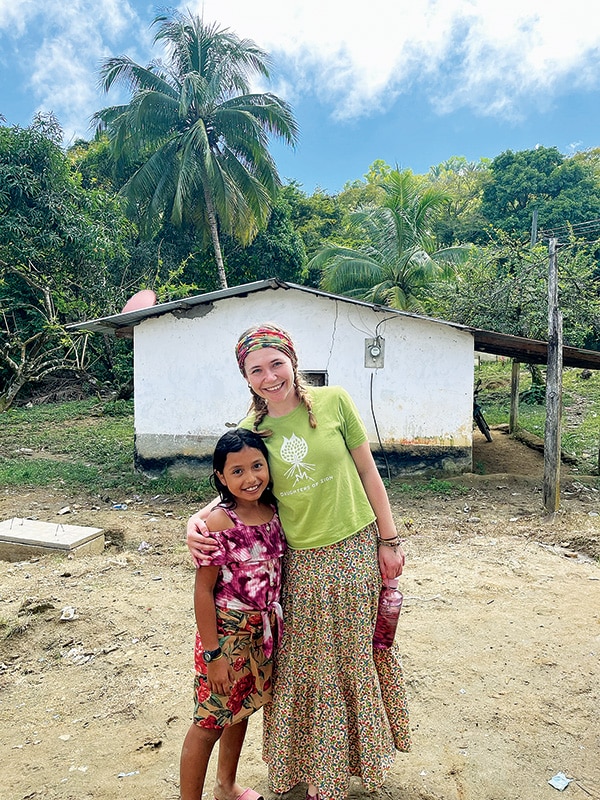
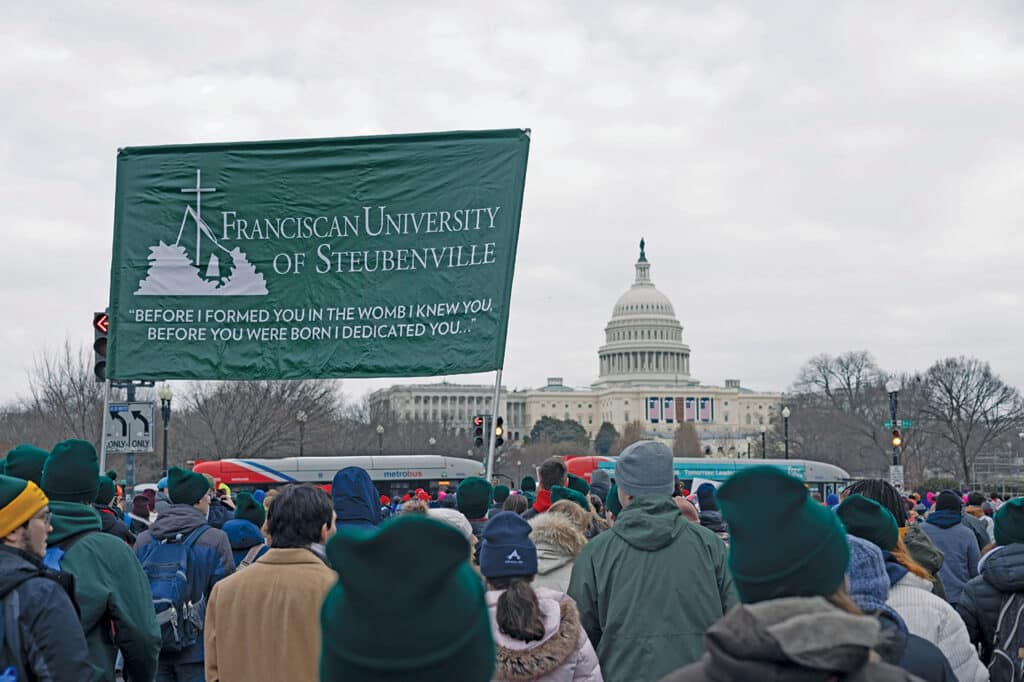
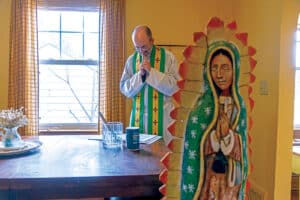 Although no pregnant students currently reside in the home, Franciscan administrators believe it is important to make this option available to current and prospective students in need.
Although no pregnant students currently reside in the home, Franciscan administrators believe it is important to make this option available to current and prospective students in need.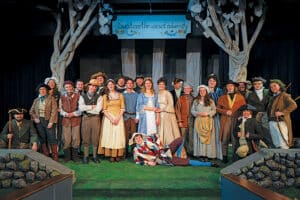 The Franciscan University Theatre Program staged two highly successful plays during the fall and spring semesters.
The Franciscan University Theatre Program staged two highly successful plays during the fall and spring semesters.